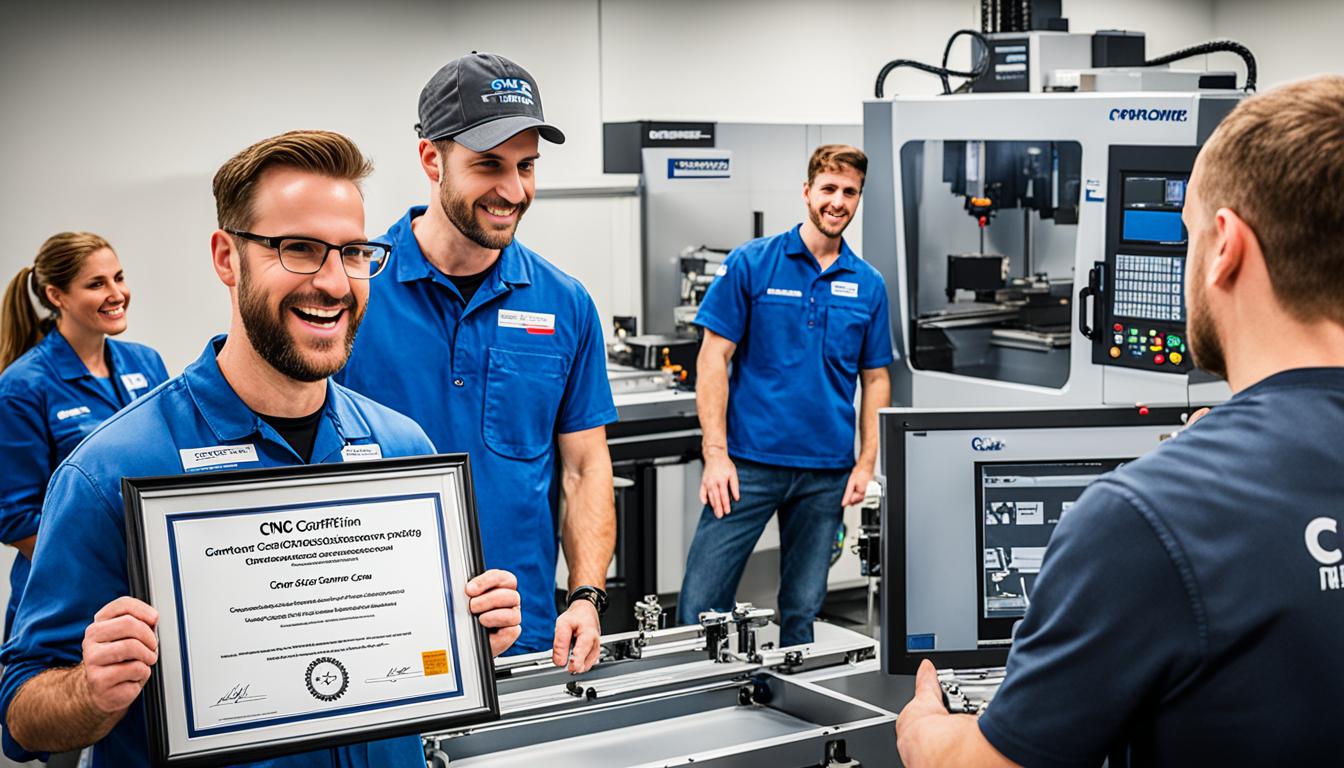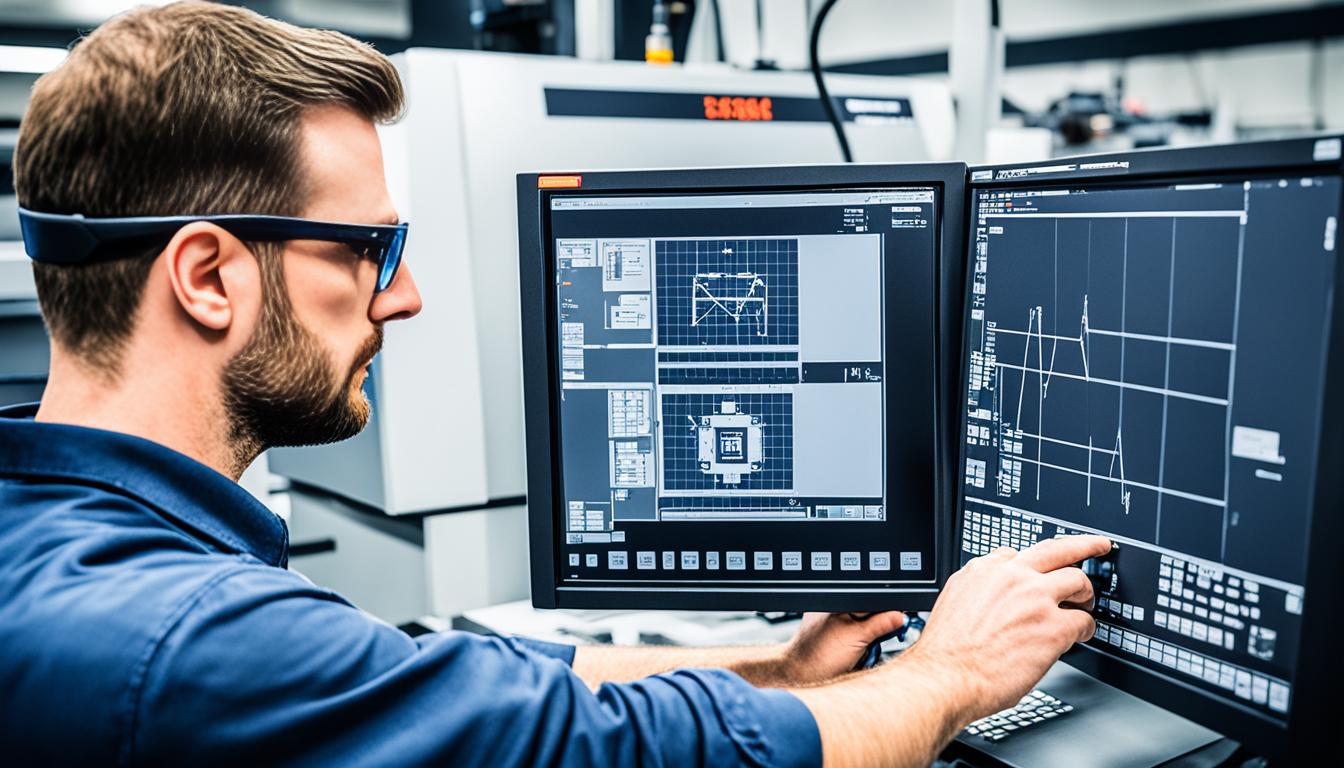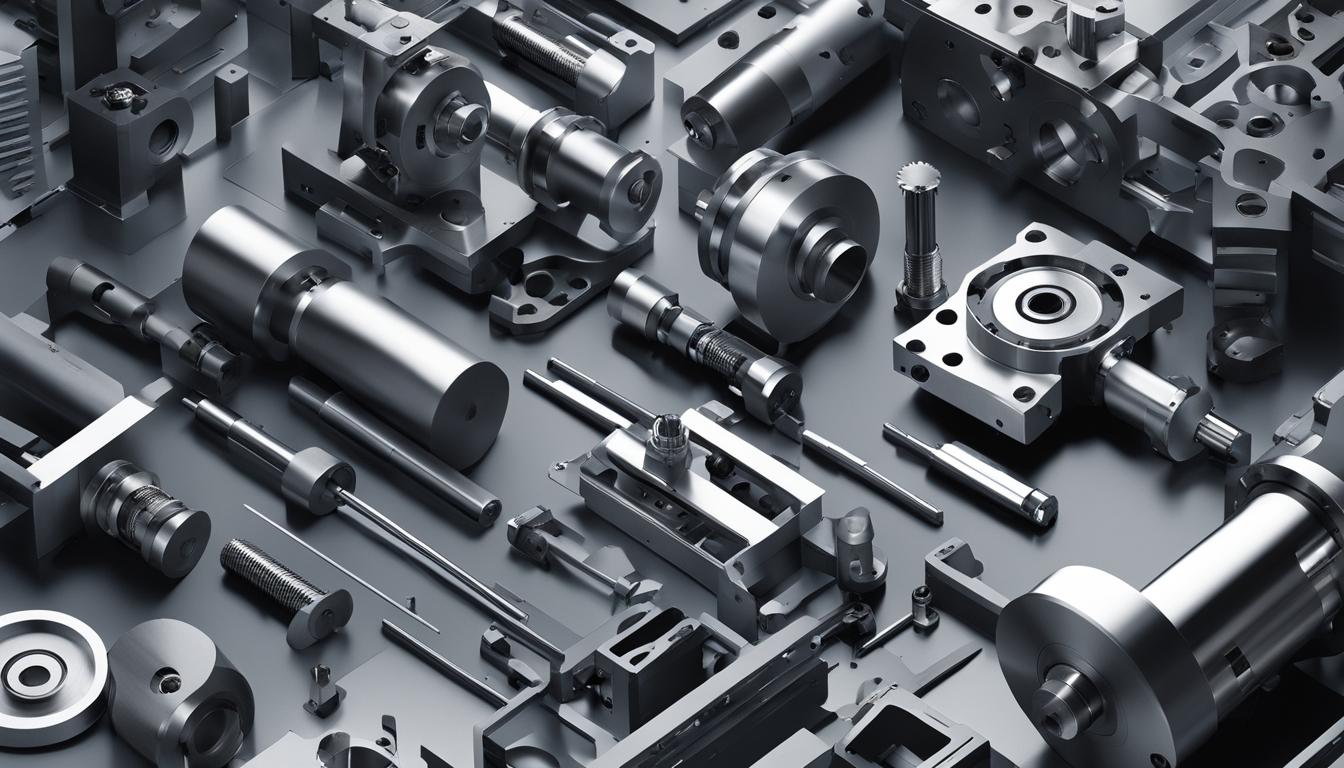For new machinists seeking CNC degrees, top picks include Associate of Applied Science (AAS) in CNC Technology, Certificate in CNC Programming, and Bachelor of Science in Manufacturing Engineering Technology with a CNC specialization. These programs offer hands-on training with industry-standard CNC machines, CAD/CAM software, and precision measurement tools. Coursework typically covers blueprint reading, metrology, machining processes, and CNC programming languages like G-code and M-code. Many programs also incorporate internships or cooperative education experiences, providing real-world exposure to manufacturing environments.
Accredited institutions often partner with industry leaders to ensure curriculum relevance and offer career placement assistance. Graduates from these programs are well-equipped for entry-level positions as CNC operators, programmers, or setup technicians, with opportunities for advancement to roles such as production manager or quality control specialist. Continuing education and professional certifications, such as those offered by the National Institute for Metalworking Skills (NIMS), can further enhance career prospects in this rapidly evolving field.
- Exploring CNC degree options is crucial for new machinists looking to enter the field.
- Choosing the right CNC degree can provide a strong foundation for a successful career in CNC machining.
- CNC degrees offer the opportunity to gain practical experience and hands-on training in operating CNC machinery.
- Consider career goals and industry demand when selecting a CNC degree program.
- Researching and comparing different CNC education options can help new machinists make an informed decision.
Benefits of CNC Machining Programs
CNC machining programs offer comprehensive training for individuals interested in becoming skilled machinists. These programs provide hands-on experience and teach students how to set up and operate CNC mills and lathes. By enrolling in a CNC machining program, new machinists can gain the necessary skills and knowledge to excel in the industry. Additionally, some programs offer opportunities for students to work in industry settings, providing real-world experience and potential job opportunities upon completion.
The Advantages of CNC Machining Programs
There are several compelling reasons why aspiring machinists should consider CNC machining programs as their preferred choice for training:
- Comprehensive Training: CNC machining programs are designed to equip students with the skills and knowledge required to operate CNC mills and lathes effectively. These programs cover various aspects of CNC machining, such as machine setup, tooling, programming, and operation techniques.
- Hands-On Experience: CNC machining programs prioritize hands-on learning to ensure students gain practical skills in a real-world setting. Students have the opportunity to work with actual CNC machines, understanding the intricacies of setup, operation, and troubleshooting.
- Industry-Relevant Curriculum: CNC machining programs often collaborate with industry professionals to develop a curriculum that aligns with current industry standards and practices. This ensures that graduates are well-prepared to meet the demands of the job market.
- Qualified Instructors: CNC machining programs employ experienced instructors who possess industry expertise. These instructors provide valuable guidance and mentorship throughout the program, ensuring students receive quality education and practical knowledge.
- Networking Opportunities: Many CNC machining programs offer students the chance to connect with industry professionals during seminars, workshops, or internships. These connections can lead to job offers or mentorship opportunities, providing a head start in the industry.
By choosing a CNC machining program, individuals can fast-track their career as a machinist and gain the necessary skills and knowledge to excel in the field of CNC machining.
| Benefits | Description |
|---|---|
| Comprehensive Training | CNC machining programs cover all aspects of CNC milling and lathe operation, providing students with a well-rounded skill set. |
| Hands-On Experience | Students receive practical training on actual CNC machines, honing their skills and gaining valuable experience. |
| Industry-Relevant Curriculum | CNC machining programs offer a curriculum that reflects current industry practices, ensuring graduates are job-ready. |
| Qualified Instructors | Experienced instructors with industry expertise provide guidance and mentorship throughout the program. |
| Networking Opportunities | Students have the chance to connect with industry professionals, opening doors to potential job opportunities and mentorship. |
Career Options for CNC Machinists
A CNC machinist has numerous career options available across a range of industries. With the right CNC degree, machinists can explore fulfilling roles in aerospace, automotive, medical, defense, semiconductor, and manufacturing sectors. These industries offer exciting opportunities for skilled CNC machinists to make a significant impact and contribute to the production of vital components and products.
Here are some of the career options available to CNC machinists:
- CNC Machinist: As a CNC machinist, you will be responsible for operating and maintaining CNC machinery, setting up tooling and work holding devices, and producing high-precision parts. This role requires a strong understanding of CNC technology, blueprint reading, and the ability to ensure the accuracy and quality of the final product.
- CNC Machine Operator: CNC machine operators are responsible for setting up and operating CNC machines to produce parts according to specifications. They work closely with CNC machinists to ensure smooth operations and quality output.
- Shop Floor Supervisor/Manager: With experience and expertise, CNC machinists can advance to supervisory or managerial positions, overseeing the shop floor operations, coordinating workflow, managing resources, and ensuring efficient production.
- Quality Control Inspector: Quality control inspectors play a crucial role in ensuring the precision and quality of the manufactured parts. They use precision measuring tools and inspection equipment to conduct thorough quality checks and maintain high standards.
- Maintenance Technician: CNC machines require regular maintenance and troubleshooting. Maintenance technicians are responsible for inspecting, repairing, and maintaining CNC machinery to ensure optimal performance and minimize downtime.
- Machine Setup Technician: Machine setup technicians specialize in preparing CNC machines for production runs. They configure tooling, program the machine, and ensure all necessary adjustments are made for smooth operation.
- Material Handler: Material handlers are responsible for moving raw materials, workpieces, and finished products to and from the CNC machines. They ensure proper material handling practices, maintain inventory control, and support efficient production processes.
- Production Planner/Scheduler: Production planners/schedulers play a pivotal role in coordinating production schedules, ensuring timely completion of orders, managing resources, and optimizing workflow to meet customer demands.
The demand for skilled CNC machinists is continuously increasing, offering numerous opportunities for career growth and advancement. Machinists can progress within their chosen field, develop specialized skills, and take on leadership roles as they gain experience.
Overview of CNC Machining Training
CNC machining training provides individuals with the necessary skills and knowledge to become proficient in operating and maintaining CNC machinery. These training programs offer comprehensive instruction in various aspects of CNC technology, enabling students to acquire critical competencies in machine operation, programming, setup, blueprint reading, and quality control techniques.
By completing CNC certification programs, individuals can gain a competitive edge in the job market and enhance their career prospects as CNC machinists. These programs not only provide theoretical knowledge but also emphasize practical training, ensuring that students develop the necessary proficiency to excel in CNC machining.
CNC machining training programs are typically offered by vocational schools, community colleges, or specialized institutes. They are designed to cater to individuals with varying levels of experience and background knowledge. Whether you’re a beginner looking to start a career in CNC machining or an experienced machinist seeking to upskill, there are training programs available to suit your needs.
During CNC machining training, students learn essential skills such as:
- Machine control panel operation
- Tool selection and setup
- Reading and interpreting blueprints
- Creating and editing CNC programs
- Performing quality control inspections
- Maintaining and troubleshooting CNC machinery

Completion of these training programs is often validated through certifications. These certifications provide tangible proof of a machinist’s expertise and can significantly enhance career advancement opportunities. Employers often prioritize candidates with recognized certifications, as they demonstrate a commitment to professional growth and a high level of proficiency in CNC machining.
Here is an example of a table showcasing some popular CNC certification programs and their respective focuses:
| Certification Program | Focus Areas |
|---|---|
| NIMS CNC Machining | Machine setup, programming, tool selection, blueprint reading, and quality control |
| AMT Certification | Advanced machining techniques, CNC programming, complex part production |
| Haas CNC Certification | Haas machine operation, programming, troubleshooting, and maintenance |
| FANUC CNC Certification | FANUC machine operation, programming, setup, and maintenance |
The above table is for illustrative purposes only and does not represent an exhaustive list of CNC certification programs.
Participating in CNC machining training and obtaining the relevant certifications can significantly enhance your career prospects as a CNC machinist. These programs equip you with the skills and knowledge necessary to excel in the field and open doors to various job opportunities in industries such as aerospace, automotive, manufacturing, and more.
Introduction to CNC Machining Technology
CNC machining technology revolutionizes the manufacturing industry by utilizing computer software to control the precise movements of machinery for complex cutting tasks. As a CNC machinist, your role is crucial in operating and maintaining CNC machinery, enabling the creation of high-precision parts. This section provides an overview of the fundamentals of CNC machining technology, highlighting the skills and expertise required in CNC precision manufacturing.
The Role of a CNC Machinist
A CNC machinist plays a pivotal role in the production process, ensuring the accurate interpretation of blueprints and technical plans. Operating CNC mills and lathes, your responsibilities also include setting up tooling and work holding devices to facilitate the precise manufacturing of intricate parts. Attention to detail, technical knowledge, and problem-solving skills are essential in maintaining the highest standards of quality and precision in CNC manufacturing.
CNC Precision Manufacturing
CNC precision manufacturing encompasses the art and science of creating detailed and intricate parts using CNC technology. With the ability to execute precise and repeatable machining processes, CNC precision manufacturing ensures consistency and efficiency in producing complex components for various industries. Whether it’s aerospace, automotive, medical, defense, semiconductor, or general manufacturing, precision manufacturing plays a pivotal role in delivering high-quality products that meet stringent specifications.
| Benefits of CNC Machining Technology | Career Advantages | Industry Applications |
|---|---|---|
| 1. Increased productivity and efficiency | 1. Diverse career opportunities | 1. Aerospace |
| 2. Enhanced precision and accuracy | 2. Job security and growth | 2. Automotive |
| 3. Flexibility in customization | 3. Competitive salary | 3. Medical |
| 4. Reduced labor costs | 4. Advancement potential | 4. Defense |
| 5. Quick prototyping and production | 5. Technological innovation | 5. Semiconductor |
CNC Programming and Machine Operation
When it comes to CNC machining, the roles of a CNC machinist and a CNC programmer often overlap in many companies. Both positions involve programming, setup, and operation of CNC machines, making them integral to the manufacturing process.
CNC programmers play a crucial role in creating programs that direct the movements of CNC machines. They utilize various programming methods, such as conversational programming or G-code programming, to generate precise instructions for the machines to follow.
Conversational programming involves manually entering information into the machine, making it an intuitive method for beginners and small-scale operations. On the other hand, G-code programming utilizes a programming language to specify toolpaths and machine operations, providing more advanced capabilities and flexibility.

For a successful career as a CNC programmer or machinist, it is essential to have a solid understanding of both manual coding and computer software programming. This combination of skills allows professionals to effectively communicate with the machines and optimize their performance.
In addition to programming, CNC machinists also handle the setup and operation of CNC machines. They work closely with the CNC programmers to ensure the machines are configured correctly and operating efficiently. Machinists take pride in their ability to interpret technical plans, set up tooling and work holding devices, and produce high-precision parts, contributing to the overall success of the manufacturing process.
Prerequisites for Becoming a CNC Programmer or Machinist
To pursue a career as a CNC programmer or machinist, there are several prerequisites that aspiring professionals should meet. While specific requirements may vary depending on the educational institution or training program, the following prerequisites are commonly expected:
- High School Diploma or GED: Most colleges and training programs require applicants to have a high school diploma or its equivalent, such as a General Education Development (GED) certificate. This ensures that individuals have obtained a basic level of education and possess essential skills like reading, writing, and comprehension.
- Understanding of Machining Principles and Processes: It is beneficial for CNC programmers and machinists to have a fundamental knowledge of machining principles and processes. This includes concepts like feeds and speeds, blueprint reading, geometric dimensioning and tolerancing (GD&T), and precision measuring. Familiarity with these fundamental concepts allows professionals to effectively interpret engineering drawings, ensure accurate measurements, and optimize machining operations.
While meeting these prerequisites is essential, it’s important to note that a solid foundation in machining fundamentals is crucial to success in CNC programming and operation. Some individuals may begin their journey as manual machinists and then transition to CNC machining, gaining hands-on experience and practical knowledge along the way.
| Prerequisites for Becoming a CNC Programmer or Machinist |
|---|
| 1. High School Diploma or GED |
| 2. Understanding of Machining Principles and Processes |
By fulfilling these prerequisites, individuals can establish a strong foundation for their CNC programming or machinist career and increase their chances of success in the field.
Where to Learn CNC Programming and Machining
If you are interested in learning CNC programming and machining, there are various avenues available to you. Community colleges and vocational high schools often offer precision machining courses that cover CNC programming. These courses provide a comprehensive foundation in CNC technology and programming techniques.
Another option is apprenticeship programs, which offer hands-on training and mentorship from experienced machinists. This allows you to learn from industry professionals and gain practical experience in CNC programming and machining.
For those who prefer to learn on the job, starting as manual machinists can be a valuable pathway. Through on-the-job training or self-study, you can acquire CNC programming skills while working in the industry. Many individuals have successfully transitioned from manual machining to CNC programming through this route.
Additionally, there are online courses and resources available for individuals interested in learning CNC programming and machining at their own pace. These online platforms provide flexibility and convenience, allowing you to learn from anywhere and at any time.
